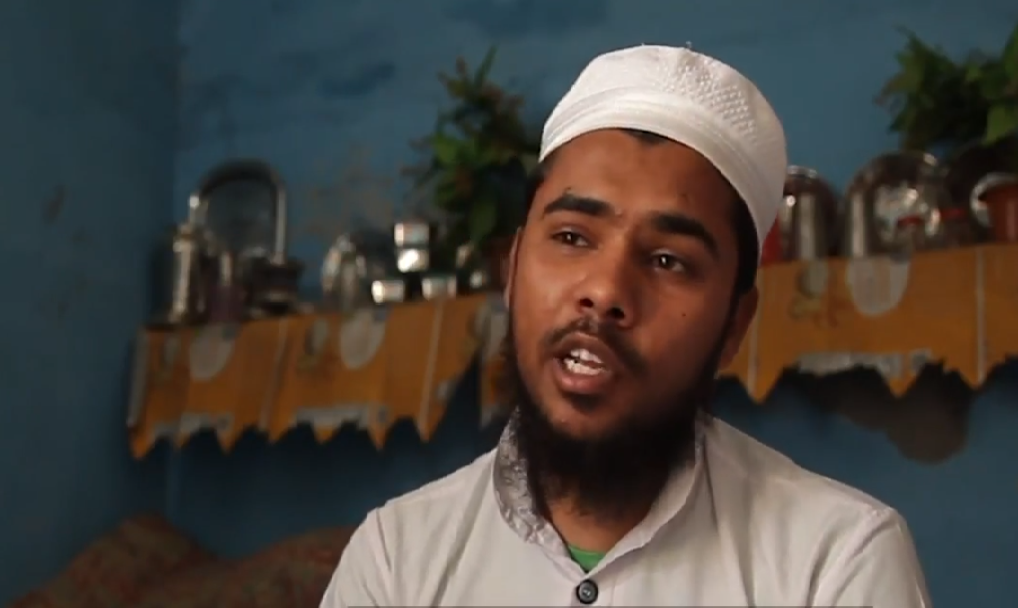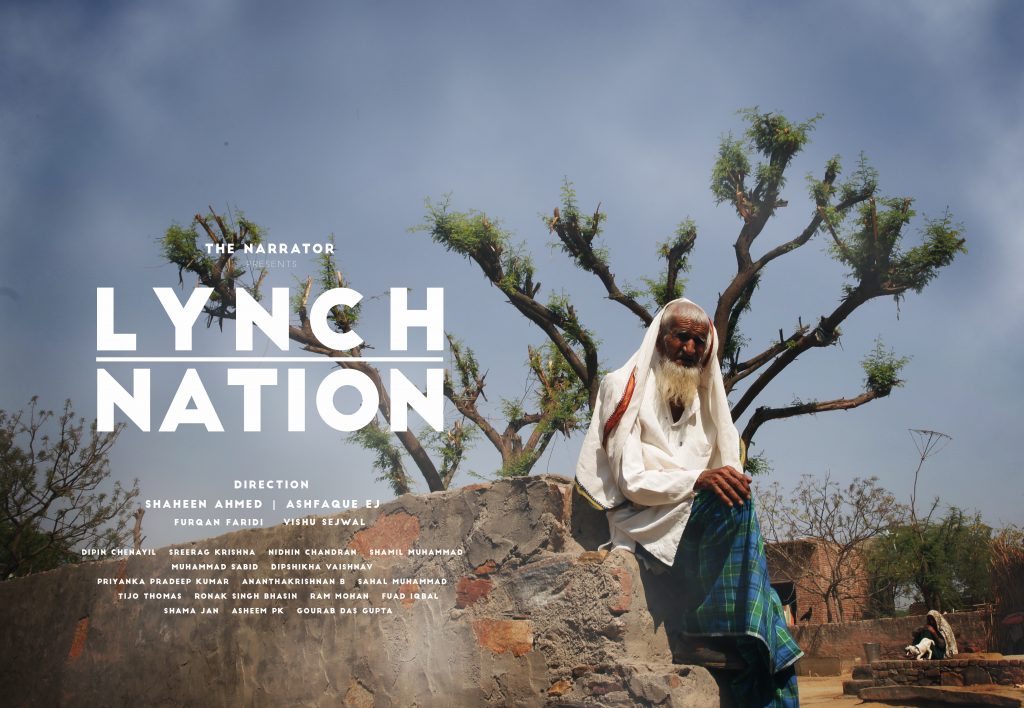All the accused in the case roam about freely, having been granted bail by the courts while Hashim awaits justice for his younger sibling Junaid who was lynched on a train in June 2017. 15-year-old Junaid was on his way home from Delhi, with his friends and brothers including Hashim on a Mathura-bound train when they were attacked by a mob.
As the legal process continues to test their patience, Hashim and his family members have found new hopes in a documentary film. “I appreciate the hard work of the filmmakers who compiled this film, maybe after watching the film some goons might have a change of heart ” Hashim remarks after watching “Lynch Nation” at its first press screening in the Press Club in Delhi last week.
Directed by budding journalists Ashafaque EJ and Shaheen Ahmed, the 44-minute film documents seven incidents of mob lynching, capturing testimonies of the victims’ families and survivors of mob attacks.
“As I watched the film it felt as if the incidence was taking place in front of me once again. I was reliving it all over again” says a choked-up Hashim. The tremors of Junaid’s death hadn’t shaken just his family but had evidently affected many. It was Junaid’s tragic death which pushed the duo to start working on the film. “In most cases of lynching, even in those included in the film, the crimes were committed under the garb of protection of cows. But there was no cow involved in Junaid’s case; He was just a boy who had done nothing wrong and was killed only for his identity,” Ashfaque puts it boldly for the audience.

Hashim
Having resolved to make what is arguably one of the first films on lynchings in India, Ashafaque and Shaheen-both residents of Kerala-reached out to other people for help. Having roped in journalist Amit Sengupta (Ashafaque’s former teacher from Indian Institute of Mass Communications as a mentor) they were joined by their friends Furqan Faridi and Vishu Sejwal as they travelled across North India covering Dadri, Alwar, Latehar, Ramgarh, Bhaivratpur, Ballabgarh and Una.
As they travelled with their crew across several North Indian states, they received help from members of Not In My Name Campaign, United Against Hate Campaigns, local activists and people for their crowdfunded project.
But it wasn’t all a rosy picture. The crew was always worried about their safety and the hostility that they could face from fringe groups. “We were extremely precautious throughout our entire journey. For example, we steered away from Jharkhand during Ramnavami when local activists warned us that the environment could be communally charged,” Shaheen told this reporter. “We were scared throughout the film…at one point we thought that we were being followed and all our movements were under watch. But thankfully, nothing big happened”.
There are still other causes for worry for the young filmmakers.
Even as filmmaker and member of the Not in My Name campaign, Rahul Roy termed the film “quiet and largely observational” in its approach, he was certain the film could not be screened at many public spaces like Delhi University without coming under attack from right-wing groups.

To be on the safe side and be able to take the film to as many people as possible the filmmakers said they would apply for certification from the Censor Board.
The filmmakers believe that lynchings have become a routine affair in the country and see their film as a fight against the increasing normalisation of such events in the media and the mainstreaming of the ideology which promotes it. Talking about what the film sets out to achieve, Ashfaque said, “We might not be able to counter the growing hate with this film but we hope that somewhere we are able to prick people’s conscience. We want people to connect to the families who lost their loved ones and feel their pain. Everytime a Pehlu Khan is killed or a Ummar Khan is killed or a Junaid is killed, we want people to feel that their own brother died”.
Apart from what the film can achieve, the film itself was seen as an achievement of sorts by the likes of Prof Apoorvanand who attended the inaugural screening of the film. “It is no coincidence that the filmmakers are young Muslims, which is extremely important and necessary. It’s important in the context of Muslims reclaiming their rightful share of spaces, fighting for themselves and not being represented by other groups” argued the Delhi University teacher.
Courtesy: Two Circles

